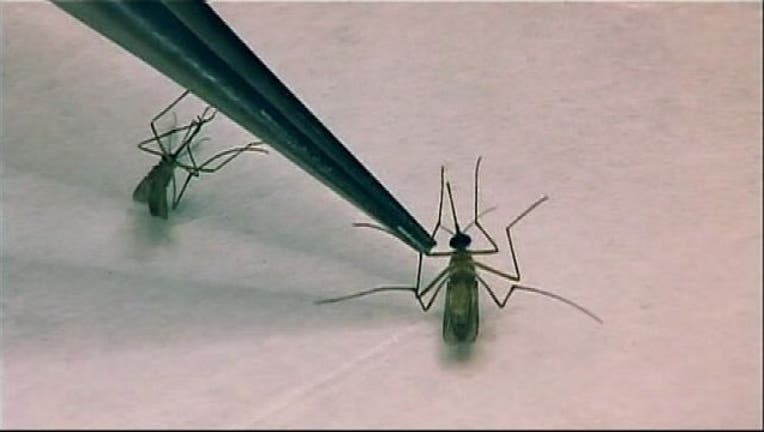Health Department warns of increased West Nile Virus activity

BAY AREA, Calif. (KTVU and wires) -- The level of West Nile virus activity is on the rise throughout California, according to the state's Department of Public Health.
So far this year, 31 counties have reported virus activity, including seven in the nine-county Bay Area, according to health department officials.
Sonoma, Marin, Solano, Contra Costa, Alameda, San Mateo and Santa Clara counties have all had WNV activity this year, according to the department.
The number of California counties with virus activity is 10 more than this time last year and also well above the five-year average of 18, health department officials said.
To date, 240 mosquito samples have tested positive for WNV, six more than last year at this time, according to the department.
WNV is influenced by many factors such as climate, the number and types of birds and mosquitoes in an area and the level of immunity in birds to the virus, health department officials said.
Drought conditions may play a role in the rise of WNV activity because of reduced water sources for birds and mosquitoes. As birds and mosquitoes seek water, they are coming into closer contact with each other than usual, which could amplify transmission of the virus, according to health department officials.
"While there have been no human cases of West Nile virus reported so far this year, it is only a matter of time before we see the first case," State Health Officer Dr. Karen Smith said in a statement.
"As people go outdoors to enjoy the warm weather we've been experiencing, we'd like them to be safe and know how to protect themselves against West Nile virus," Smith said.
WNV is transmitted to humans and animals by the bite of an infected mosquito. However, the risk of serious illness to most people is
low, according to health department officials.
For some individuals, less than 1 percent, exposure to WNV can lead to a serious neurological illness such as encephalitis or meningitis, health department officials said.
People who are 50 years of age or older also have a higher chance of getting sick and have a higher chance to develop complications. Studies also indicate that people with diabetes and hypertension are at greater risk for serious infections, according to the department.
To prevent exposure to mosquito bites and WNV, CDPH officials recommend practicing the a technique called the "Three D's."
The first D is for DEET, which is to remind people to apply insect repellant containing ingredients such as DEET, picaradin, oil of lemon eucalyptus or IR3535, which all can keep mosquitoes from biting people, health department officials said.
The second D stands for dawn and dusk, which serves to caution residents to wear proper clothing and repellant at these times, because that is when mosquitoes are more likely to bite, according to health department officials.
The last D is for drain, which is to prompt people to eliminate all sources of standing water in their yards, such as flowerpots, old car tires and buckets, because mosquitoes normally lay their eggs in standing water.
The state Department of Public Health encourages residents to report dead birds by calling their toll-free number at (877) 968-2473.
For more information on WNV activity in the state, residents can visit www.westnile.ca.gov.

